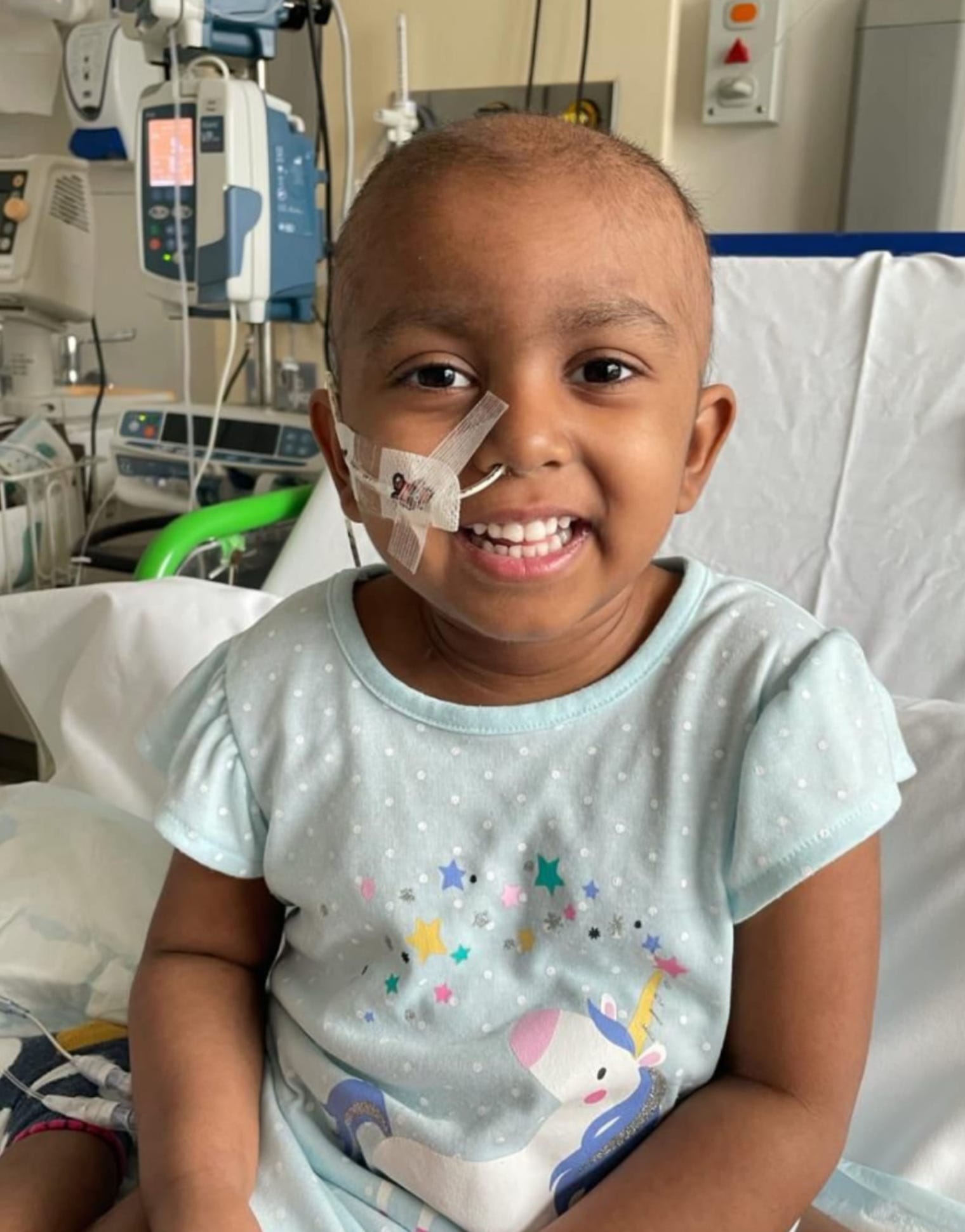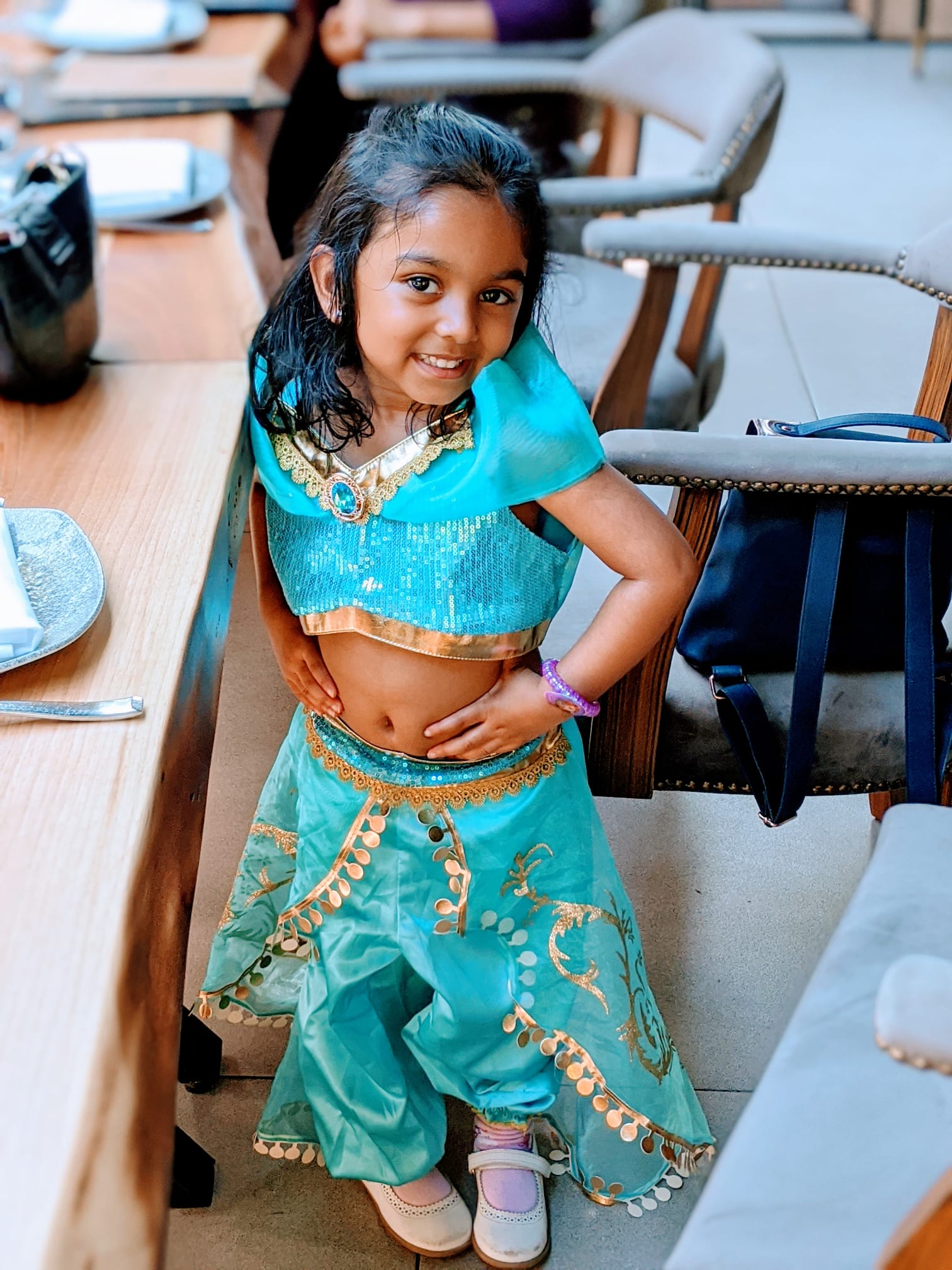
A British-Tamil family of a four-year-old leukaemia patient from East London has called for more people from South Asian backgrounds, to sign up to the bone marrow register, with a stem cell donor needed within the next few days.
4-year-old Esha Nadeswaran was diagnosed with acute myeloid leukaemia in May and has spent 15 weeks at Great Ormond Street Hospital in London undergoing two intensive but unsuccessful cycles of chemotherapy. Esha’s last hope lies in finding a genetic match for a stem cell transplant.
Whilst a donor was found yesterday, there are still many uncertainties such as the donor not following through with the procedure; the donor may not have a high donor match percentage and tests are yet to be done to confirm whether the donor is healthy, the family revealed.

Esha’s family extended their plea globally due to the low number of Tamils currently signed up as donors. Esha’s father Rishya, who is from a British Tamil background, urged more people from South Asian backgrounds to come forward and sign up as donors.
“It’s not just about Esha, there’s hundreds of people looking for bone marrow. If you are a blood donor, you can get yourself added to the British Bone Marrow Registry at your next donation,” he said.
People can also sign up through Anthony Nolan, a charity which runs a stem cell register. For people like Esha, the best hope of survival is a stem cell transplant. People outside the UK can sign up through DKMS or Canadian Blood Services.
Bone marrow is the soft, spongy tissue found at the centre of certain bones and is where blood stem cells – which produce red and white blood cells – are found.
Esha’s uncle Jonathan Vijayan told Tamil Guardian about the misinformation around stem cell donation. “People are misinformed regarding the risk and pain of the overall procedure. Contrary to popular belief, in 90% of the time, it will be a very non-invasive procedure that causes minimal inconvenience to the donor’s life. By sacrificing your time for a few hours, you can save someone’s life! All subsequent loss of income, travel expenses etc. will be reimbursed.”
To improve the chances of a successful transplant, the NHS says a donor must be found to match the patient’s human leukocyte antigen (HLA) types.
Some ethnic groups have more complex tissue types than others and HLA types are inherited, meaning that ethnic background is an important factor in predicting the likelihood of finding a match.
The NHS said Caucasian patients are able to find the best possible match in 70 per cent of cases. For people from black, Asian and minority ethnic (BAME) backgrounds, this drops to as low as 20 per cent.
Rishya said that a transplant is the last chance of survival for Esha, who he described as a “very funny and bubbly and cheeky individual” who “makes anyone who meets her smile” and loves Disney princess movies.
“The reality is if she doesn’t get it, she will not survive.”
"It all just happened so quickly and this has been so heart-breaking for the family, said Esha’s Aunt, Meera Visakan. “Esha said she was tired, lost her appetite and developed bruising on her leg. But then a series of blood tests confirmed the devastating news.”
"Your world is turned upside down, you can't sleep, eat or breath really. I can't emphasise enough our plea to the public to sign up to be a stem cell donor to save her life or even a child in a similar situation."
If we don't there are no other treatments available [for Esha]. The process is easier than doing a COVID-[19] test," she added.
Read the full story of Esha's parents about her journey here.
Esha and her family thanked the "great response" to the donation drives and the messages they have received from across the world. pic.twitter.com/yTB1rJ4AAQ
— Tamil Guardian (@TamilGuardian) September 15, 2021
Esha is noted as “loving food, especially sweet treats” but due to the symptoms of her chemotherapy, which includes nausea; discomfort when eating and drinking due to mucositis, reduced sense of taste and loss of appetite, she is unable to enjoy these foods like she once was able to.
Donation drives have been set up across London and surrounding areas in a bid to find Esha a donor.
A list of the current upcoming drop-in events can be found here.
